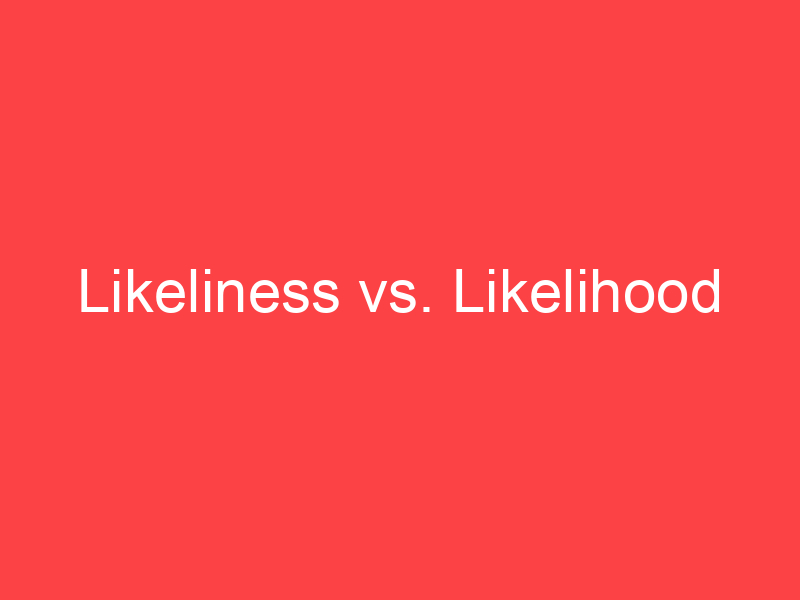-
Likelihood
In frequentist inference, a likelihood function (often simply the likelihood) is a function of the parameters of a statistical model, given specific observed data. Likelihood functions play a key role in frequentist inference, especially methods of estimating a parameter from a set of statistics. In informal contexts, “likelihood” is often used as a synonym for “probability”. In mathematical statistics, the two terms have different meanings. Probability in this mathematical context describes the plausibility of a random outcome, given a model parameter value, without reference to any observed data. Likelihood describes the plausibility of a model parameter value, given specific observed data.
In Bayesian inference, although one can speak about the likelihood of any proposition or random variable given another random variable: for example the likelihood of a parameter value or of a statistical model (see marginal likelihood), given specified data or other evidence, the likelihood function remains the same entity, with the additional interpretations of (i) a conditional density of the data given the parameter (since it is then a random variable) and (ii) a measure or amount of information brought by the data about the parameter value or even the model. Due to the introduction of a probability structure on the parameter space or on the collection of models, it is a possible occurrence that a parameter value or a statistical model have a large likelihood value for a given specified observed data, and yet have a low probability, or vice versa. This is often the case in medical contexts. Following Bayes’ Rule, the likelihood when seen as a conditional density can be multiplied by the prior probability density of the parameter and then normalized, to give a posterior probability density.
-
Likeliness (noun)
The condition or quality of being probable or likely to occur.
-
Likeliness (noun)
Likelihood, probability or chance of occurrence; plausibility or believability.
-
Likeliness (noun)
Suitability; agreeableness.
-
Likeliness (noun)
Likeness; similarity.
-
Likelihood (noun)
The probability of a specified outcome; the chance of something happening; probability; the state or degree of being probable.
“In all likelihood the meeting will be cancelled.”
“The likelihood is that the inflation rate will continue to rise.”
-
Likelihood (noun)
The probability that some fixed outcome was generated by a random distribution with a specific parameter.
-
Likelihood (noun)
Likeness, resemblance.
“”There is no likelihood between pure light and black darkness, or between righteousness and reprobation.” (Sir W. Raleigh)”
-
Likelihood (noun)
Appearance, show, sign, expression.
“”What of his heart perceive you in his face by any likelihood he showed to-day ?” (Shak)”
-
Likelihood (noun)
the state or fact of something’s being likely; probability
“situations where there is a likelihood of violence”
“young people who can see no likelihood of finding employment”

